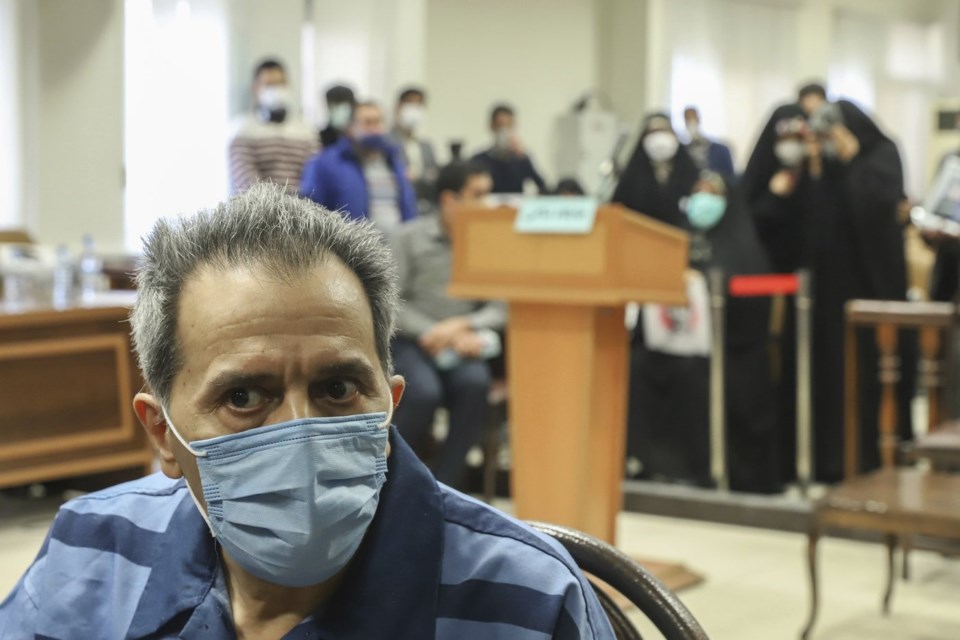DUBAI, United Arab Emirates (AP) — An Iranian official claimed Tuesday that died before Tehran could execute him — directly contradicting the country's earlier announcement he had been put to death.
The comment by Asghar Jahangir comes after Germany shut down all three Iranian consulates in the country over Sharmahd's death, leaving only the embassy in Berlin open.
Meanwhile, Iran's reformist President Masoud Pezeshkian has offered his own criticism of Germany's response to Sharmahd's death as tensions remain high between Tehran and the West over its rapidly advancing nuclear program and the ongoing Mideast wars.
The judiciary’s Mizan news agency quoted Jahangir as saying: “Jamshid Sharmahd was sentenced to death, his sentence was ready to be carried out, but he passed away before implementation of the sentence.”
He did not elaborate. Jahangir's remarks were made to the state-affiliated Quds newspaper after a weekly news conference, when journalists typically buttonhole the spokesman into answering questions he didn't take from the podium.
Authorities in Germany and the U.S., where Sharmahd once lived, could not be immediately reached for comment. A lawyer for Sharmahd's family did not immediately respond to a request for comment.
Iran had said it executed Sharmahd on Oct. 28. He was 69.
Iran accused Sharmahd, who lived in Glendora, California, on a mosque that killed 14 people — including five women and a child — and wounded over 200 others, as well as plotting other assaults through the little-known Kingdom Assembly of Iran and its Tondar militant wing.
Iran also accused Sharmahd of “disclosing classified information” on missile sites of Iran’s paramilitary Revolutionary Guard during a television program in 2017.
His family disputed the allegations and had worked for years to see him freed. Germany, the U.S. and international rights groups have dismissed Sharmahd's trial as a sham.
Sharmahd was apparently kidnapped while on a layover in Dubai, United Arab Emirates, in 2020. His family received their last message from him on July 28, 2020.
It’s unclear how the abduction happened, but tracking data showed that Sharmahd’s cellphone traveled south from Dubai to the city of Al Ain on July 29, crossing the border into Oman. On July 30, tracking data showed the phone traveled to the Omani port city of Sohar, where the signal stopped.
Two days later, Iran announced it had captured Sharmahd in a “complex operation.” The Intelligence Ministry published a photograph of him blindfolded.
In the time since his execution, Germany shut the consulates. It's a diplomatic tool Germany seldom uses and signals a major downgrade in relations with Tehran.
However, Iran has responded by criticizing Germany and the West, including Pezeshkian, who campaigned on a promise of getting sanctions on the Islamic Republic lifted.
“When someone, who has slaughtered dozens, is executed, they say you do not observe human rights,” Pezeshkian said.
Jon Gambrell, The Associated Press



